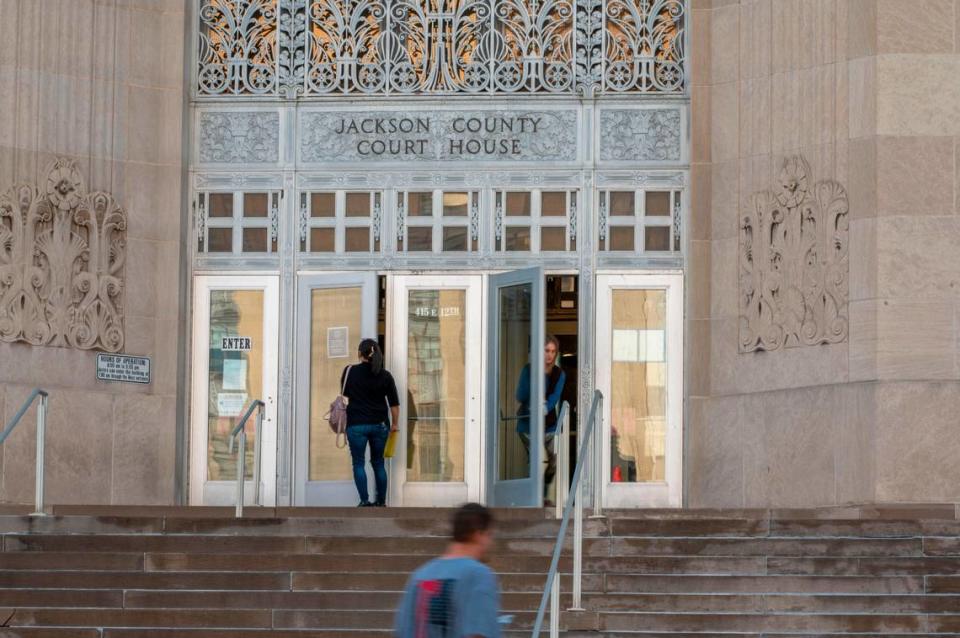You have the right to an attorney. But in Missouri when does that right kick in?
After Tiffany Mills was arrested as a suspect in a Kansas City stabbing, she did not have an attorney when she stood before a judge in May 2020.
During oral arguments Tuesday before the Missouri Supreme Court, attorney Matthew Mueller said the judge should have appointed counsel. Failing to do so, he said in a brief, “resulted in her needlessly prolonged pretrial incarceration.”
Mills was released in June after a public defender was appointed and a motion to reduce bond was filed. She was convicted in 2022 on a lesser charge and sentenced to three years in prison, according to court documents.
The Missouri Supreme Court heard five cases Tuesday related to a defendant’s right to counsel.
Mueller argued that arraignment and bond hearings are critical stages in a prosecution, which would require representation. Even if a not guilty plea is entered, he said, a defendant did not enter it intelligibly and there are other defenses that could have been raised.
Assistant Missouri Attorney General Kristen Johnson said early hearings are not critical stages and that appearing without an attorney did not result in an error or prejudice. She said there is a process for having a public defender appointed in a case.
According to a brief filed by Mary Fox, the head of the Missouri State Public Defender’s office, state statute says a public defender is only appointed after a defendant applies for its services and is found to be eligible. However, she points out that a rule gives judges the ability to appoint any attorney that is not a public defender “to represent indigent defendants and ensure their constitutional right to counsel is met.”
Fox also noted that the public defender system — which has historically been overloaded — handled more than 86,000 cases in fiscal year 2023.
In January 2023, St. Louis Circuit Court began appointing counsel for defendants during their initial appearances and bond hearings. Defendants can meet with their attorney before going before a judge.
Available data showed that from October through the end of January, all 671 defendants with initial appearances had counsel, according to Joel Currier, a spokesman for the court. Eighty-four percent were provided an attorney while the remainder had a public defender or a private attorney.
“We do see some movement in this direction,” Mueller told the Missouri Supreme Court.


